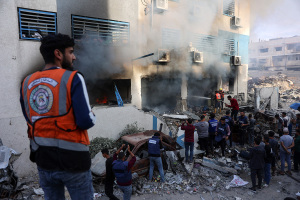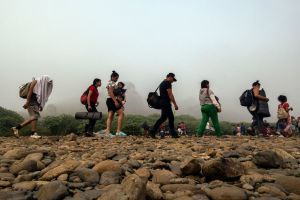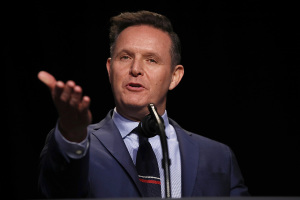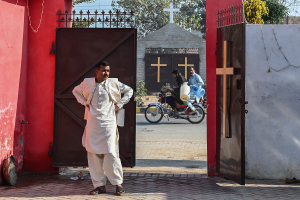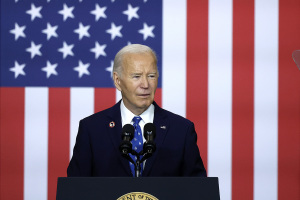Khmer Rouge Genocide Trial Leaves Cambodians Pessimistic
The historic trial against the senior most members of the brutal Khmer Rouge regime began in Cambodia on Monday. Although many believed the trial would never happen, public opinion has been generally pessimistic as to whether the trial will serve justice for the heinous crimes conducted by the regime.
The U.N.-backed Extraordinary Chambers in the Courts of Cambodia (ECCC) will hear cases against three of the surviving leaders of the four-year regime, including Nuon Chea, Khieu Samphan and leng Sary.
A fourth surviving member of the regime, 74-year-old leng Thirith, was set to stand trial but was declared “unfit” due to Alzheimer’s disease.
The former leaders are facing charges of crimes against humanity, genocide, torture, violation of the Geneva Conventions and homicide. All vehemently deny the charges against them.
It remains unclear if the court will hear from the three defendants, all of which are in their 80s.
People across Cambodia fear that the former leaders will die before they face justice and many activists and victims have expressed disappointment at the lengthy process of establishing the ECCC, which has already been saddled with delays and controversy.
Theary Seng, the founder of the Cambodian Center for Justice and Reconciliation told the Wall Street Journal, “the release of leng Thirith is only one reflection of how incredibly late these trials are coming into place.”
Prosecutors at Monday’s milestone trial said that the suffering of the Cambodian people “was absolute” during the years of the brutal regime when forced labor, murder, starvation and torture reigned.
Co-prosecutor Chea Leang told the court that the Khmer Rouge “turned Cambodia into a massive slave camp, reducing an entire nation into prisoners living under a system of brutality that defies belief to the present day.”
The Khmer Rouge was a communist guerilla group that killed nearly 2 million Cambodians, a quarter of its population, during its reign from 1975 to 1979.
The group came to power following a devastating five-year civil war.
Leader of the group, the infamous Pol Pot, envisioned a communist utopia where Cambodian people would be entirely self-sufficient and free of currency and banks, religious influence and education.
The ultra-communist group sought to outlaw all social institutions and was responsible for the killing and purging of intellectuals, foreigners, Christians, Buddhists, businessmen and “lazy elite” from the country.
Pot died in a Cambodian village in the jungle without ever serving time for the mass atrocities that were orchestrated under his regime.
















